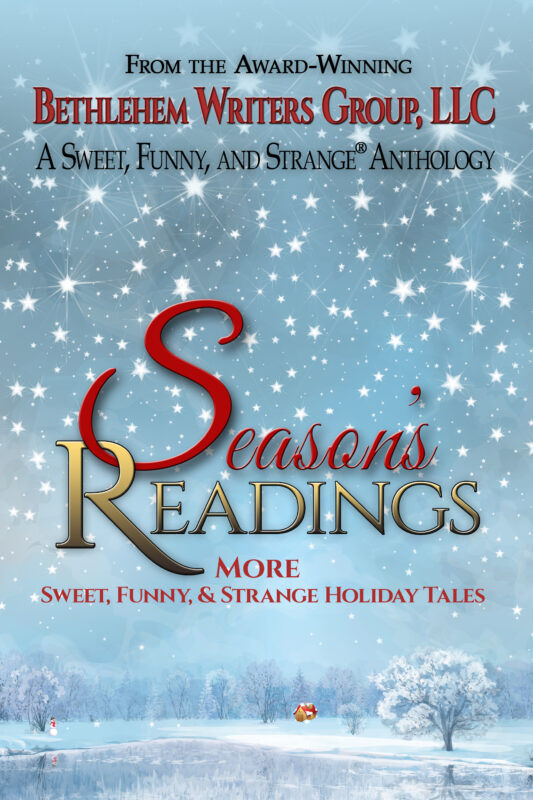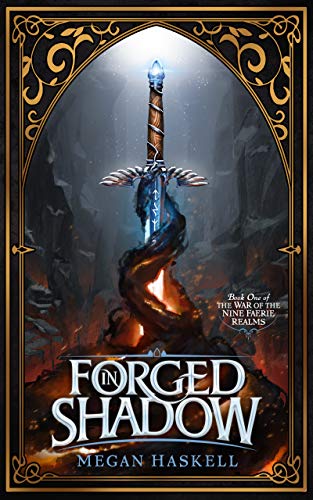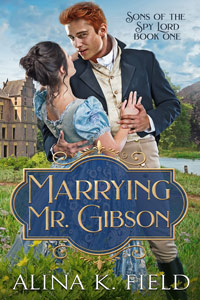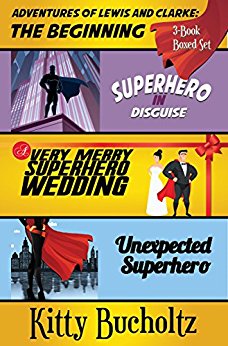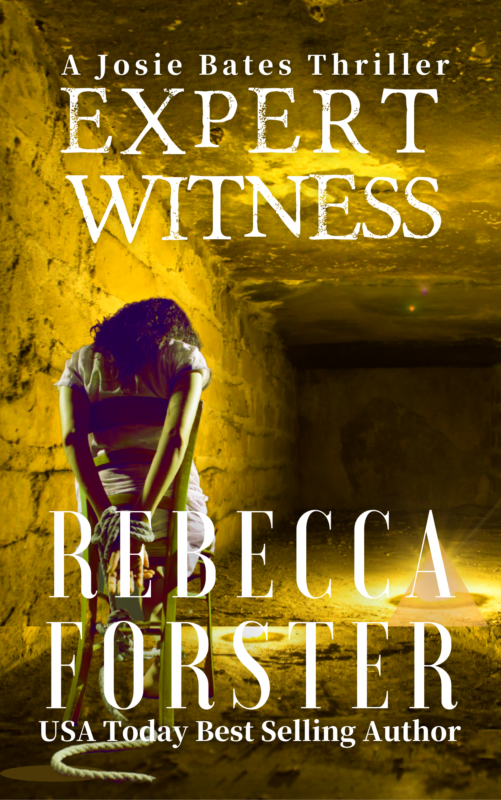Who Said That? by Jenny Jensen
January 19, 2020 by Jenny Jensen in category On writing . . . by Jenny Jensen tagged as dialog, good writingSnow falling. No deadlines looming. Perfect day to cozy up on the couch and read.
Deep into a very funny paranormal romance I reach the climactic moment when the cheeky young witch meets the acid tongued evil vampiress. Biting insults fly back and forth with the speed of fiery spells. I’m laughing and then…wait. Who said that? I have to go back to the beginning to be sure I understand which character that pithy insult came from. The dialog rages on for a page and a half, not a dialog tag in sight. The punctuation alone sets apart the speakers. The rhythm of the story is broken when I lose my place and I wish the author had found a way to make that clever, long exchange read effortlessly. It’s still funny and well written though, so I read to the end.
Not long ago I’d given up on a detective story when I stumbled on yet another doozy of a dialog tag line: “I want to go home,” she said vulnerably. Really, vulnerably? The character’s husband has just been gruesomely murdered and her junky son is in jail. I’m pretty certain she’s vulnerable. Worse, given the flow of the narrative I know who’s speaking. That adverb felt like hitting a chug hole at 40 mph. Sigh. That was the final disconnect for me – I’d lost the rhythm of the story. I no longer cared who’d murdered the bookstore owner.
The writerly world is flooded with dialog tag dicta. We have the Elmore Leonard – Steven King school of absolute ‘she/he’ said (and possibly, maybe, sometimes ‘asked’). We have the proponents of injected emotion: ‘she yelled’, “he cried”, “she demanded hotly”. And then there are the minimalists who reject all tags, relying solely on punctuation to set speakers apart.
There are no rules for dialog tags, and I don’t champion making any, but smart writers are aware of how a tag affects the narrative flow and when it adds to, or detracts from that flow. The purpose of a dialog tag is to identify the speaker. Good storytelling shows emotion so the narrative circumstances and the wording of the dialog will convey how the words were said. Depending on how the scene is structured no tag would be needed, or ‘said’ would be enough.
And then there are those instances where a more elaborate tag is vital. (There really are no rules!) All the great writers occasionally use some variation of ‘she snarled’ ‘he groaned’ etc. Sometimes it makes sense to support the dialog by a little telling. Even Steven King admits to slipping in an adverb in a dialog tag or two. A writer’s gotta do what their story demands. As an editor and reader I prefer that the music of the dialog within the setting of the scene show me all I need to know.
The reader’s inner ear will hear good dialog; it’s an unconscious understanding. For my money the best dialog tags are invisible. All that need register at the conscious level is the identity of the speaker. Does anyone knowingly read ‘said’? It’s like a good child, seen but not heard. “Unless it’s little Parker next door whose screams of delight fill me with joy,” I say unreservedly.
Ping Pong by Kidd Wadsworth
January 18, 2020 by Kidd Wadsworth in category Infused with Meaning by Kidd Wadsworth tagged as colliding worlds, tragic, writing
Author’s Note: In this piece I am trying to juxtapose two elements: one happy, another tragic. I want the reader to be tossed back and forth, knowing that these two worlds are about to collide. BTW this is a true story.
Ping Pong
Green never took on as many shades, or the Earth appear as lush, as in the summer of ‘92 in Ann Arbor, Michigan. Windows down, radio up, I drove, my newly minted sister-in-law in the seat next to me. I’d been married a blissful eight weeks. We’d eaten lunch at Red Hot Lovers, a delightfully greasy hot dog joint. I had the dregs of my Sprite in my cup holder, and she the last of her Diet Coke in hers.
Slowing, I came to a stop behind a sedan waiting to turn out into traffic.
We jammed to the beat, hands in the air.
Filling the crowded sedan were four Arab men in robes and two women in hijabs. One woman sat in the middle of the front seat, the other in the back on the right.

I drank the last of my Sprite.
The sedan driver turned yelling, pointing his finger. The woman in the backseat threw open the door. The man beside her, pulled her across his lap as she tried to escape. She thrashed against him. The second man in the backseat grabbed her. Her fist hit the back windshield. Her legs pummeled the first man as he reached out and slammed the door shut. The sedan, wheels squealing, sped out into the traffic. A car honked; another swerved.
I clenched the steering wheel, shaking.
As the sedan disappeared around a bend in the road, she whispered, “Did you get the license plate?
“No.”
“The car was white.”
“It’s going east on…” Frantically, I searched for a street sign. “what road is this?”
“I think it was a Chevy? Maybe a BMW?”
*
I HAVE A FRIEND WHO WANTS TO WRITE. . .
January 15, 2020 by Rebecca Forster in category The Write Life by Rebecca Forster, Writing tagged as etiquette, Family, mentor, mentoring, new author, writing
So my brother called the other day (actually 2 days into the new year) and said: I have a friend and she wants to write a book. Can you just talk to her and tell her everything you know? I already gave her your phone number.
I have five brothers and sisters, a mom and any number of cousins, in-laws and friends who have each made this request on various occasions. I am always happy to help new writers, but I’m not crazy about my phone number passed around. First, I was probably the only teenage girl in the world who hated talking on the phone and that hasn’t changed in the last 50 years. More importantly it is impossible to distill 30 plus years of writing and publishing experience into a quick conversation and have it benefit a new writer.
The good news is that there is email. Email allows me to put information into a manageable format, provide links to appropriate sites that will help the writer, and allow that person to save the conversation for future reference. Here are some thoughts for the author willing to pay it forward, the writer looking for help, and the brothers and sisters who love to share the author in the family.
THE REFERER: Ask (preferably not with the new writer standing in front of you) if the author has time to help and how they would like to be contacted. Always allow the author to beg off even though most won’t. Writing is a time consuming business and multiple requests can feel overwhelming especially when an author is in the middle of a big project.
THE REFEREE: Be prepared. This tells the author that you are willing to work hard. Preparation should include a basic understanding of what you want to write (genre, form, etc.) and your goal (traditional or indie publishing, to create a career, expand a hobby). Have a short list of specific questions. Don’t try to cover the entire industry in one conversation.
Be respectful. An established author has built her business through trial and error, hard work, rejection and acceptance. Often she has paid for classes and conferences. Respect her hard work, commitment, and risk.
THE AUTHOR IN THE MIDDLE: Be gracious and as effective as you can be. A new writer will be nervous speaking to an established author, so put her at her ease. Then remember that there is a fine line between useful information and too much information. Usually it is possible to tell how much the Referee can absorb from their first contact. If a new writer can’t articulate whether they want to be an indie or a traditionally published author start with the basics, direct this writer to blogs on publishing and offer recommendations for coaches and writing classes. The nuances of the industry would be lost on a true newbie.
Set parameters. I am always grateful when a new author asks if it’s okay to check back in. I love the request as much as I love to hear the progress. As new writers become grounded, their questions often help me rethink my work as much as it helps them move forward.

Don’t miss Lost Witness, Rebecca’s newest addition to The Witness Series, a Josie Bates Thriller.
Join over 2 million readers of The Witness Series!
Bethlehem Writers Group, LLC January Featured Author of of the Month
January 14, 2020 by A Slice of Orange in category Contests, Featured Author of the Month tagged as 2020 Short Story Contest, AE Decker, Bethlehem Writers Group, Bethlehem Writers Roundtable Short Story Award, Carol L Wrignt, Kitty Bucholtz, Short Story Award, Write Now Workshop
The Bethlehem Writers Group, LLC (BWG), founded in 2006, is a community of mutually supportive, fiction and nonfiction authors based in Bethlehem, Pennsylvania. The members are as different from each other as their stories, spanning a range of genres including: children’s, fantasy, humor, inspiration, literary, memoir, mystery, paranormal, romance, science fiction, women’s fiction, and young adult.
BWG has published five anthologies. Each anthology has an overall theme—broadly interpreted—but includes a variety of genres, and all but the first anthology include stories from the winner(s) of The Bethlehem Writers Short Story Award. Their first anthology, A Christmas Sampler: Sweet, Funny, and Strange Holiday Tales (2009), won two Next Generation Indie Book Awards: Best Anthology and Best Short Fiction.
Besides anthologies and yearly writing contests, the group publishes a quarterly literary journal, The Bethlehem Writers Roundtable, and hosts twice monthly writing workshops and a critique groups for local members. You can see the schedule of BWG meetings and events, including author signings here.
Next up for BWG

BWG is working on their sixth anthology, Fur, Feathers, & Scales: Sweet, Funny, and Strange Animal Tales.
In connection with this anthology, they are hosting The Bethlehem Writers 2020 Short Story Award.
The 2020 Short Story Award opened on January 1, 2020. The theme will be Animal Stories, broadly interpreted. Stories of 2,000 words or fewer about WILD ANIMALS, PETS, or IMAGINARY BEASTS will be welcome (so long as an animal is an important character or element of the story).
The winner will receive $200 and may be offered publication in the above mentioned upcoming anthology. The 2020 Guest Judge is Edgar Award winning and NYT best-selling author Peter Abrahams/Spenser Quinn.
Announcing the 2020 Short Story Award
January 13, 2020 by Bethlehem Writers Group in category From a Cabin in the Woods by Members of Bethlehem Writers Group tagged as 2020 Short Story Award, Bethlehem Writers Roundtable Short Story Award, Fur Feather & Scales, Peter Abrahams, Spencer Quinn
It’s time!
The 2020 Short Story Award is now open!
Bethlehem Writers Roundtable seek animal stories (broadly interpreted) of 2000 words or fewer.
First Place winner will be considered for publication in their newest “Sweet, Funny, and Strange” anthology:
Fur, Feathers, & Scales: Sweet, Funny, and Strange Animal Tales
The latest of their “Sweet, Funny, and Strange” Anthologies
See Submission Guidelines
The 2020 Guest Judge

Peter Abrahams is the Edgar Award winning author of thirty-eight novels including The Right Side, The Fan, A Perfect Crime, and the Echo Falls series for younger readers.
Under his pen name, Spencer Quinn, he writes the New York Times best-selling Chet and Bernie series, as well as the Queenie and Arthur series for younger readers.
Abrahams was born in Boston, graduated from Williams College, and lives on Cape Cod.
You read an interview of Mr. Abrahams here.
Previous BWR Short Story Award Judges
2012–Jonathan Maberr
2013–Hank Phillippi Ryan
2014–Rebecca Forster
2015–Curtis Smith
2016–Marisa A. Corvisiero
2017–Carrie Vaughn
2018–Kimberly Brower
2019–John Grogan
To submit a story
Affiliate Links
A Slice of Orange is an affiliate with some of the booksellers listed on this website, including Barnes & Nobel, Books A Million, iBooks, Kobo, and Smashwords. This means A Slice of Orange may earn a small advertising fee from sales made through the links used on this website. There are reminders of these affiliate links on the pages for individual books.
Search A Slice of Orange
Find a Column
Archives
Featured Books
SEASON’S READINGS: More Sweet, Funny, and Strange Holiday Tales
We hope you enjoy these holiday gifts.
More info →FORGED IN SHADOW
In the chaos of war, not all heroes shine. Some must rise from shadows to claim the light.
More info →MARRYING MR. GIBSON
She won't be forced into marriage to a nobleman's by-blow. He won't be trapped into marriage by a father he's never known.
More info →
ADVENTURES OF LEWIS AND CLARK BOXED SET
She thought marriage would be sex, laundry, and a mortgage.
Girl, was she wrong.
EXPERT WITNESS
Josie Bates disappears without a trace and the investigation finds more than one person who wants her dead.
More info →Newsletter
Contributing Authors
Search A Slice of Orange
Find a Column
Archives
Authors in the Bookstore
- A. E. Decker
- A. J. Scudiere
- A.J. Sidransky
- Abby Collette
- Alanna Lucus
- Albert Marrin
- Alice Duncan
- Alina K. Field
- Alison Green Myers
- Andi Lawrencovna
- Andrew C Raiford
- Angela Pryce
- Aviva Vaughn
- Barbara Ankrum
- Bethlehem Writers Group, LLC
- Carol L. Wright
- Celeste Barclay
- Christina Alexandra
- Christopher D. Ochs
- Claire Davon
- Claire Naden
- Courtnee Turner Hoyle
- Courtney Annicchiarico
- D. Lieber
- Daniel V. Meier Jr.
- Debra Dixon
- Debra H. Goldstein
- Debra Holland
- Dee Ann Palmer
- Denise M. Colby
- Diane Benefiel
- Diane Sismour
- Dianna Sinovic
- DT Krippene
- E.B. Dawson
- Emilie Dallaire
- Emily Brightwell
- Emily PW Murphy
- Fae Rowen
- Faith L. Justice
- Frances Amati
- Geralyn Corcillo
- Glynnis Campbell
- Greg Jolley
- H. O. Charles
- Jaclyn Roché
- Jacqueline Diamond
- Janet Lynn and Will Zeilinger
- Jaya Mehta
- Jeff Baird
- Jenna Barwin
- Jenne Kern
- Jennifer D. Bokal
- Jennifer Lyon
- Jerome W. McFadden
- Jill Piscitello
- Jina Bacarr
- Jo A. Hiestand
- Jodi Bogert
- Jolina Petersheim
- Jonathan Maberry
- Joy Allyson
- Judy Duarte
- Justin Murphy
- Justine Davis
- Kat Martin
- Kidd Wadsworth
- Kitty Bucholtz
- Kristy Tate
- Larry Deibert
- Larry Hamilton
- Laura Drake
- Laurie Stevens
- Leslie Knowles
- Li-Ying Lundquist
- Linda Carroll-Bradd
- Linda Lappin
- Linda McLaughlin
- Linda O. Johnston
- Lisa Preston
- Lolo Paige
- Loran Holt
- Lyssa Kay Adams
- Madeline Ash
- Margarita Engle
- Marguerite Quantaine
- Marianne H. Donley
- Mary Castillo
- Maureen Klovers
- Megan Haskell
- Melanie Waterbury
- Melisa Rivero
- Melissa Chambers
- Melodie Winawer
- Meriam Wilhelm
- Mikel J. Wilson
- Mindy Neff
- Monica McCabe
- Nancy Brashear
- Neetu Malik
- Nikki Prince
- Once Upon Anthologies
- Paula Gail Benson
- Penny Reid
- Peter Barbour
- Priscilla Oliveras
- R. H. Kohno
- Rachel Hailey
- Ralph Hieb
- Ramcy Diek
- Ransom Stephens
- Rebecca Forster
- Renae Wrich
- Roxy Matthews
- Ryder Hunte Clancy
- Sally Paradysz
- Sheila Colón-Bagley
- Simone de Muñoz
- Sophie Barnes
- Susan Lynn Meyer
- Susan Squires
- T. D. Fox
- Tara C. Allred
- Tara Lain
- Tari Lynn Jewett
- Terri Osburn
- Tracy Reed
- Vera Jane Cook
- Vicki Crum
- Writing Something Romantic
Affiliate Links
A Slice of Orange is an affiliate with some of the booksellers listed on this website, including Barnes & Nobel, Books A Million, iBooks, Kobo, and Smashwords. This means A Slice of Orange may earn a small advertising fee from sales made through the links used on this website. There are reminders of these affiliate links on the pages for individual books.


